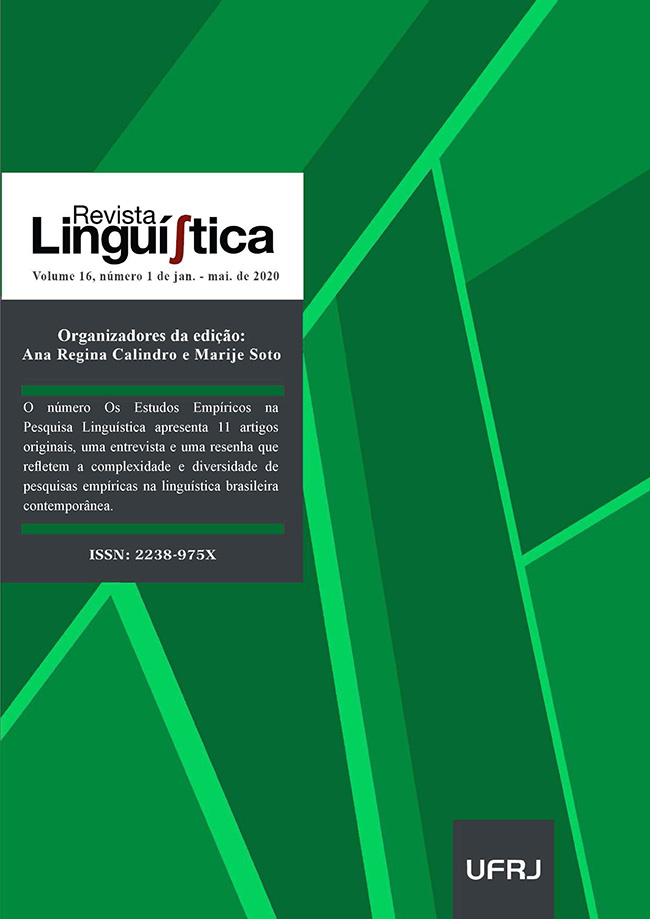Interference of agreeing verbs in Libras (l1) in the use of prepositions in the interlanguage of deafs learning L2 (written) Portuguese
DOI:
https://doi.org/10.31513/linguistica.2020.v16n1a31620Keywords:
Libras, dative, L2 acquisition, prepositions, agreeing verbs.Abstract
The study investigates the acquisition of (written) Portuguese as a second language (L2) by deaf people having the Brazilian Sign Language (Libras) as a first language (L1), focusing on the use of the preposition ‘para’ to introduce the dative complement in Brazilian Portuguese (BP). Taking into consideration the ‘Partial Access Hypothesis’, according to which there is interference of L1 in L2 acquisition, as well as the hypothesis that constructions with agreeing verbs in Libras and with the preposition ‘para’ in BP bear a relational head which denotes inclusion, namely Q/P(⊂), we noticed, by means of an experimental study, that the presence of DIR on the agreeing verb in Libras favors the occurrence of the preposition ‘para’ in the interlanguage. The interference is positive whenever there is coincidence in parametric marking between BP and Libras, as the verb selects the preposition ‘para’, and its correspondent in Libras manifests DIR. In turn the negative interference arises whenever the preposition ‘para’ occurs with verbs that do not take a dative preposition in BP while its correspondent in Libras manifests DIR.
Downloads
Published
Issue
Section
License
Authors who publish in the Revista Linguí∫tica agree with the following terms:
The authors maintain their rights, ceding to the journal the right to first publication of the article, simultaneously submitted to a Creative Commons license permitting the sharing with third-parties of published content as long as it mentions the author and its first publication in the Revista Linguí∫tica.
Authors may enter into additional agreements for the non-exclusive distribution of their published work (for example, posting in online institutional or non-profit repositories, or book chapters) so long as they acknowledge its initial publication in the Revista Linguí∫tica.

The journal Revista Linguí∫tica is published by the Post-Graduate program in Linguistics of UFRJ and employs a Creative Commons - Attribution-NonCommercial 4.0 International (CC-BY-NC).









